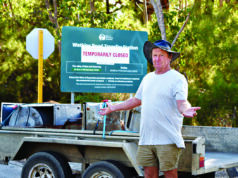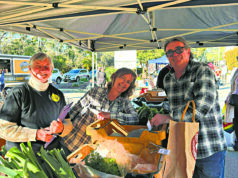The City of Canning council has near-unanimously voted down a controversial public open space policy that would have seen sub-divisions of three blocks or more slugged 10 per cent of the master block price, but alternative motion could see a Development Contribution plan applied to the entire City.
The proposed Public Open Space policy had drawn the ire of ratepayers in St James, Shelley, Rossmoyne and Bentley, suburbs with an identified lack of open space.
The policy would have seen sub-divisions of three blocks or more in those four suburbs charged 10 per cent of the market value of the original block, with those funds used by the City to buy or improve public space amenity in the corresponding suburb.
At the City’s ordinary council meeting of March 15, councillors were almost unanimously against the proposed policy, with Mayor Patrick Hall going so far as to call it Un-Australian.
While the motion was being debated, Cr Amanda Spencer-Teo foreshadowed a motion that would reject the proposed POS policy due to concerns raised by the community in relation to the contribution percentage.
The second part of the motion requested the CEO draft a Development Contribution plan for the suburbs of Shelley, Rossmoyne, Bentley and St James and presents these to Elected Members at a Strategic Information Briefing, no later than six months following the adoption of the Community Infrastructure Plan for further consideration by Elected Members.
Cr Singh then moved an amendment to apply the contribution plan to the entire City of Canning, which was accepted with no objection.
Cr Spencer-Teo’s motion was passed 7-3, with councillors Bain, Holland and Sweeney voting against the motion.

There are two different types of Development Contribution Plans, a community infrastructure (CI) DCP and a POS DCP.
Cr Spencer-Teo said the application of the DCP would be flexible.
“In the case for Bentley, St James, Shelley and Rossmoyne these suburbs could have a POS and CI DCP as a POS deficiency has been identified in these areas,” she said.
“All other suburbs would only have a CI DCP as there is no shortage of POS in these areas, should Council decide this is a good option.
“If we require 3ha in St James to meet the minimum required, but decided we would only need 1ha to meet the immediate to five year needs of the community we would only collect funds from developers to cover the purchase of 1ha and it would be spread evenly amongst all developers who divided their land in the period the DCP was in place.”













